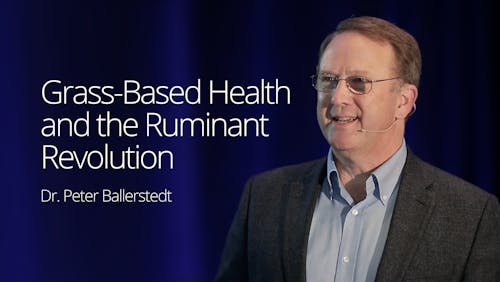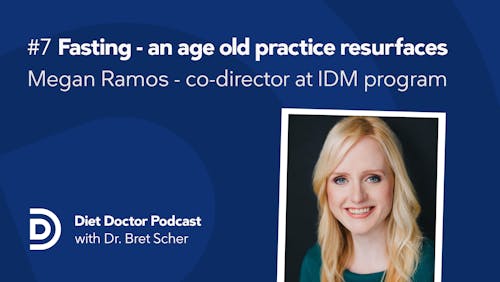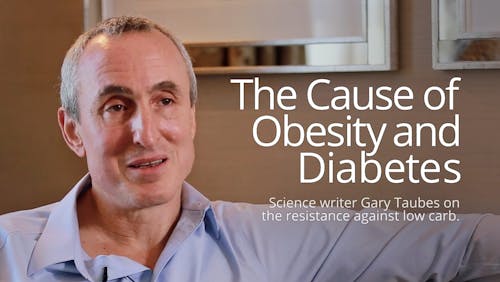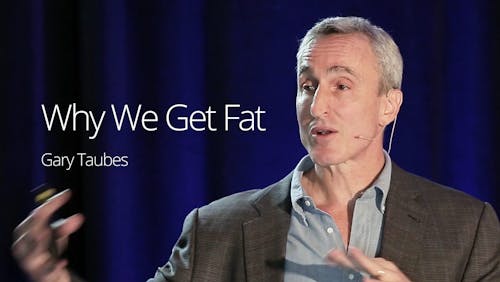TMAO is back in the news, but it still means little for our health

A new study from Dr. Christopher Gardner of Stanford University (author of the DIETFITS study) shows a small reduction in trimethylamine N-oxide (TMAO) in those eating plant-based meat substitutes instead of animal-based foods.
For reference, TMAO is an organic compound formed after you consume foods containing choline, an essential nutrient found in red meat, poultry, fish, and eggs. In response to Dr. Gardner’s study, the big question has to do with whether this slight reduction in TMAO matters for your health.
In my opinion, this is an example of a well-run study that, in the end, lends very little to our knowledge of human health. But it is worth going through the details so we can see how media headlines aren’t always supported by the research results.
For starters, it’s important to note that this study was funded by Beyond Meat, a producer of plant-based burgers. To their credit, though, an article promoting the study from Stanford Medical Center was upfront about acknowledging this. Many times, I find it frustrating when forced to hunt for funding sources and conflicts of interest, and here there is a clear conflict of interest. And while this doesn’t invalidate the data, it does require us to review the trial set-up and design with a more critical lens.
In this intervention, 36 presumably healthy individuals were randomized and told to eat at least two servings per day of either plant-based meat substitutes or actual meat (primarily red meat) for eight weeks. After the initial eight weeks, they “crossed over,” or switched to the other diet. During entire 16 week intervention, all participants were told to not alter any of their other dietary habits.
For reference, the ingredients found in the plant-based substitute were: water, pea protein isolate, expeller-pressed canola oil, refined coconut oil, rice protein, natural flavors, cocoa butter, mung bean protein, methylcellulose, potato starch, apple extract, pomegranate extract, salt, potassium chloride, vinegar, lemon juice concentrate, sunflower lecithin, beet juice extract, and carrot.
This is important since the plant substitute is a highly processed food. Interestingly, they did not report inflammatory markers in this study. I, for one, would have liked to see if the processed product created a higher inflammatory response.
Of note, the plant diet was higher in fiber, 27 grams vs 22 grams per day, and lower in saturated fat with 26 grams vs 33 grams per day than the meat diet.
The main outcome from this intervention had to do with TMAO. Why is this problematic? Well, it has to do with the fact that small, short-term trials are unable to measure meaningful endpoints, such as who lives, dies, or who gets heart disease.
So, instead, the authors have to choose the surrogate outcome markers that they believe relate to human health. The assumption, in this case, is that elevated TMAO levels cause heart disease — therefore, making it a meaningful surrogate marker.
However, a critical view of the data does not support a cause-and-effect relationship between TMAO levels and health, as we reviewed in two prior articles:
- In the first, titled “Eating red meat increases TMAO levels. Should we care?,” points out that the association with heart disease was only significant between the highest quartile and the lowest quartile in TMAO without a gradation effect.
- The second article, titled “TMAO — Smoking gun or passive observer?,” featured studies that were heavily confounded by uncontrolled variables. Study subjects with higher TMAO levels also were more likely to smoke and experience diabetes, hypertension, or increased inflammation. This is another prime example of healthy user bias.
So, although Dr. Gardner’s study is designed to answer whether the groups’ eating habits incited a difference in TMAO, it does nothing to answer whether one group is healthier than the other as a result. Therefore, it does not add to relevant data in a meaningful way that could guide people toward a healthier lifestyle.
But let’s discuss the results anyway.
Interestingly, TMAO levels were unchanged between the groups for those who started with the plant substitutes and then switched over to eating meat. However, TMAO was reduced from 6.4 to 2.9 when the subjects started with meat and transitioned to the plant substitutes. There were no significant changes in gut microbiome.
The plant substitute eaters also had lower levels of low-density lipoprotein (LDL) cholesterol (109 vs 120) with no difference in high-density lipoprotein (HDL) cholesterol or triglycerides (TG), and a slightly lower weight of 1 kilo.
Interestingly, fish was allowed in the meat group but not the plant group. Of any food, fish is known to have the highest contribution to TMAO, so I would imagine that this strongly confounds the results.
Also, of interest was the variability in results. As they mention in the paper, “two of the 18 participants in the animal to plant group had particularly large excursions of TMAO during the animal phase, whereas others had very little change from baseline.”
So, what can we learn from this?
- There is possibly something different about gut bacteria production of TMAO when eating animal meat compared to plant substitutes, but only when the plant meal follows the animal meal. This could be due to microbiome differences from consuming fiber or the plant material itself. However, the microbiome testing was insufficient to detect this difference. It could also be due to the inclusion of fish.
- There is a wide variation in response to TMAO production with two outliers showing a large difference and the rest of the subjects showing a much more modest difference. (Remember, even in the very weak data correlating TAMO to heart disease, it was only significant at the extremes.)
- There is no convincing evidence that these results impact someone’s health.
Unfortunately, the headlines are likely to say that plant-based meat substitutes are better for heart health. That fits nicely into the prevailing but questionable narrative that meat is bad for our health and the environment. Headlines like these inspire me to dissect these studies and show you how the details frequently don’t support the conclusions.
You can learn more about the health and environmental impacts of meat in our guide to red meat, and via our podcasts featuring Dr. Frank Mitloehner and Diana Rodgers.
Thanks for reading,
Bret Scher, MD FACC
More posts
Is more fasting always better?























